terrorist assemblages
NEXT WAVE: NEW DIRECTIONS IN WOMENS STUDIES
A series edited by Inderpal Grewal, Caren Kaplan, and Robyn Wiegman
TERRORIST ASSEMBLAGES
homonationalism in queer times
JASBIR K. PUAR
duke university press  durham and london 2007
durham and london 2007
2007 Duke University Press
All rights reserved
Printed in the United States of America on acid-free paper
Designed by Katy Clove
Typeset in Cycles by Keystone Typesetting, Inc.
Library of Congress Cataloging-in-Publication Data appear on the last printed page of this book.
An earlier version of Chapter 1 appeared as Mapping U.S. Homonormativities, in Gender, Place, and Culture: A Journal of Feminist Geography 13, no. 1 (2006): 6788.
An earlier version of chapter 2 appeared as Abu Ghraib: Arguing against Exceptionalism, in Feminist Studies 30, no. 2 (2004): 52234.
CONTENTS
FOR SANDEEP SINGH PUAR
MAY 8, 1970FEBRUARY 20, 2003
If we think of tactics as the art of assembling men and weapons in order to win battles, and of strategy as the art of assembling battles in order to win wars, then logistics could be defined as the art of assembling war and the agricultural, economic, and industrial resources that make it possible. If a war machine could be said to have a body, then tactics would represent the muscles and strategy the brain, while logistics would be the machines digestive and circulatory systems: the procurement and supply networks that distribute resources throughout an armys body.Manuel De Landa, War in the Age of Intelligent Machines
Do not build on the good old days, but on the bad new ones.Walter Benjamin, Reflections
What do lives of privilege look like in the midst of war and the inevitable violence that accompanies the building of empire?M. Jacqui Alexander, Pedagogies of Crossing
preface:
tactics, strategies, logistics
July 19, 2006, was declared the International Day of Action against Homophobic Persecution in Iran by two lesbian, gay, bisexual, transgender, intersex, and queer (LGBTIQ) organizations, the self-proclaimed militant Britishbased OutRage!, and the Paris-based group idaho (an acronym for International Day against Homophobia). Marking the one-year anniversary of the public hangings in the city of Mashad of two male Iranian youths, Mahmoud Asgari and Ayaz Marhoni, the two groups initiated a call for global protests that resulted in actions in dozens of cities across the United States, Canada, and Europe. Demonstrations in San Francisco, New York, London, Amsterdam, Moscow, Dublin, and Stockholm were joined by less predictable locales, such as Salt Lake City, Sioux Falls, Tulsa, Warsaw, Marseille, Mexico City, and Bogot.
There was, however, plenty of discord among LGBTIQ organizations regarding the call for international protests. The culmination of a year-long argument regarding the facts of the execution, these disputes involved Peter Tatchells OutRage!; the director of the International Gay and Lesbian Human Rights Commission (IGLHRC) Paula Ettelbrick; Scott Long, director of the Lesbian, Gay, Bisexual and Transgender Rights Project of Human Rights Watch (hrw); the Gay City News writer Doug Ireland; Al-Fatihas founder, Faisal Alam; and the usual suspects among gay commentators, such as Andrew Sullivan. By July 23, according to Kim, both IGLHRC and hrw were concerned that gay rights were being co-opted at the expense of a broader social justice issue: execution of minors.
Whether the complex case at hand is one of juvenile execution, the persecution of gays, or both, many commentators note that the United States continues to resist a growing consensus that capital punishment is inhumane, having only just recently outlawed executions of those under 18 in March 2005. As Faisal Alam notes, that three Nigerian homosexual men were sentenced to be stoned to death earlier that summer elicited no such global indignation.
Hailed as a member of the axis of evil by the Bush administration, and with evidence of planned U.S. military action mounting during the summer of 2005, it seems pretty clear why now, and why Iran. Further, the 2006 anniversary protests took place during the second month of the Israeli invasion of Lebanon, amid escalating pressure to consider military strikes against Syria and Iran for their support of Hezbollah. The frenzied fixation on the homophobia of Irans state regime is thus perpetuated, in many instances, by the very same factions who are responsible for the global proliferation of protests against a future invasion of Iran. At this historical moment, this bizarre conjuncture functions as nothing less than the racism of the global gay left and the wholesale acceptance of the Islamophobic rhetoric that fuels the war on terror and the political forces pushing for an Iranian invasion, if not a tacit acceptance of the pending occupation itself.
Terrorist Assemblages: Homonationalism in Queer Times is an invitation to deeper exploration of these connections among sexuality, race, gender, nation, class, and ethnicity in relation to the tactics, strategies, and logistics of war machines. This project critiques the fostering, managing, and valorizing of life and all that sustains it, describing the mechanisms by which queerness as a process of racialization informs the very distinctions between life and death, wealth and poverty, health and illness, fertility and morbidity, security and insecurity, living and dying. Race, ethnicity, nation, gender, class, and sexuality disaggregate gay, homosexual, and queer national subjects who align themselves with U.S. imperial interests from forms of illegitimate queerness that name and ultimately propel populations into extinction. This benevolence toward sexual others is contingent upon ever-narrowing parameters of white racial privilege, consumption capabilities, gender and kinship normativity, and bodily integrity. The contemporary emergence of homosexual, gay, and queer subjectsnormativized through their deviance (as it becomes surveilled, managed, studied) rather than despite itis integral to the interplay of perversion and normativity necessary to sustain in full gear the management of life. In making this argument, I deploy racialization as a figure for specific social formations and processes that are not necessarily or only tied to what has been historically theorized as race.
The emergence and sanctioning of queer subjecthood is a historical shift condoned only through a parallel process of demarcation from populations targeted for segregation, disposal, or death, a reintensification of racialization through queerness. The cultivation of these homosexual subjects folded into life, enabled through market virility and regenerative reproductivity, is racially demarcated and paralleled by a rise in the targeting of queerly raced bodies for dying. If the turn to life for queer subjects is now possible, how queerness folds into racialization is a crucial factor in whether and how that turn to life is experienced, if it is experienced at all.
Further, the rise of these nonnormative national subjects is linked in no uncertain terms to the racialized populations that come into being through the assignment of queerness, an assignment disavowed by the queer subject embraced by biopolitical incitement to life. Terrorist Assemblages thus attends to the connectivities that generate queer, homosexual, and gay disciplinary subjects while concurrently constituting queerness as the optic through which perverse populations are called into nominalization for control. That is, this recasting of queerness as that opticand the operative technologyin the production, disciplining, and maintenance of populations drives the analyses in this book. This disjuncture of the regulating and regulated queer, homosexual, gay disciplinary subjects and the queered darkening of terrorists marks the surprising but not fully unexpected flowering of new normativities in these queer times.
Next page


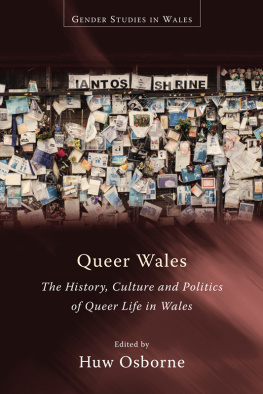

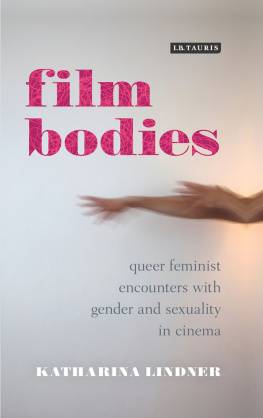
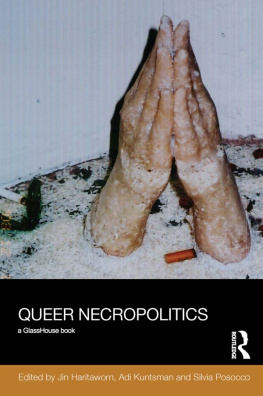
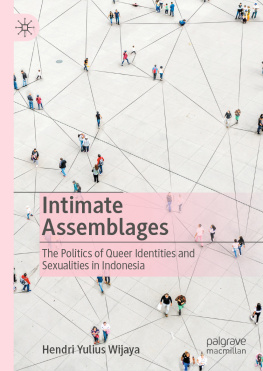
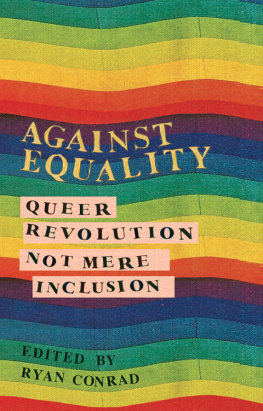
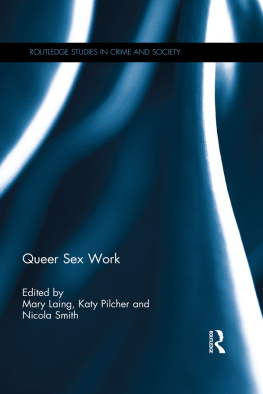
 durham and london 2007
durham and london 2007